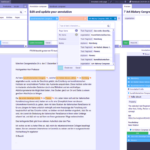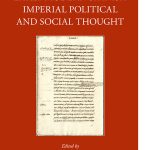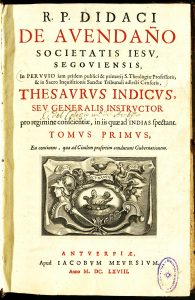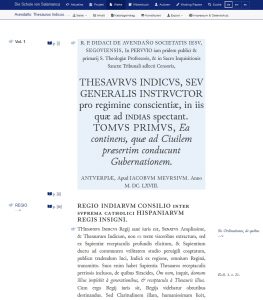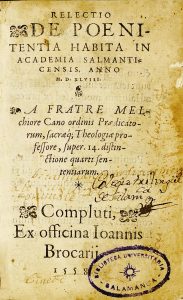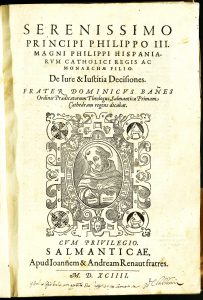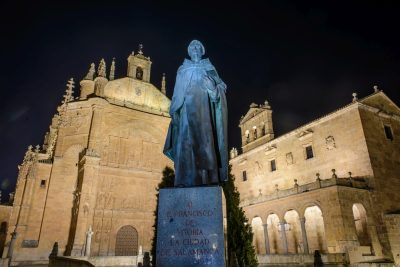In the last months, the Salamanca team has joined forces with colleagues from the Max Planck Institute of Legal History and Legal Theory in Frankfurt a.M. to set up the Permanent Seminary ‚Legal History Meets Digital Humanities‘. As our own work centers on creating digital editions of the Salamancan authors, we are especially happy that Georg Vogeler from the Centre for Digital Humanities at the University of Graz (Austria) followed our invitation and will be our guest on July 25, 2023, 15.00-17.00.
Academic disciplines such as philosophy, theology, and jurisprudence tend to regard the mediality of texts as a matter of secondary importance, because they understand them primarily as a means of discussing concepts and the relations between them, using established terminologies in the debate. For these purposes, philological editing methods appear to be relevant only when there is „substantial“ variance, which means a textual variance that generates different concepts and changes their relationships.
Historians go even further when they want to critically compare the facts reported in the texts. In this case, linguistic variance becomes even less significant. Therefore, Vogeler would like to discuss with the participants of the seminar: a) whether it is also possible to investigate the factual referents behind the linguistic expression in legal history and b) whether the methods he has proposed to capture the level of meaning in texts seem feasible in editing practice.
Georg Vogeler is a historian with an interest in the Late Middle Ages, particularly medieval administrative documents and diplomatics. His research encompasses Digital Scholarly Editing, Semantic Web technologies, Data Modelling, and application of Data Science to the Humanities.
The event is organised in a hybrid mode. Please register here: https://www.eventbrite.de/e/the-assertive-edition-hybrid-event-tickets-667358044877?aff=oddtdtcreator
